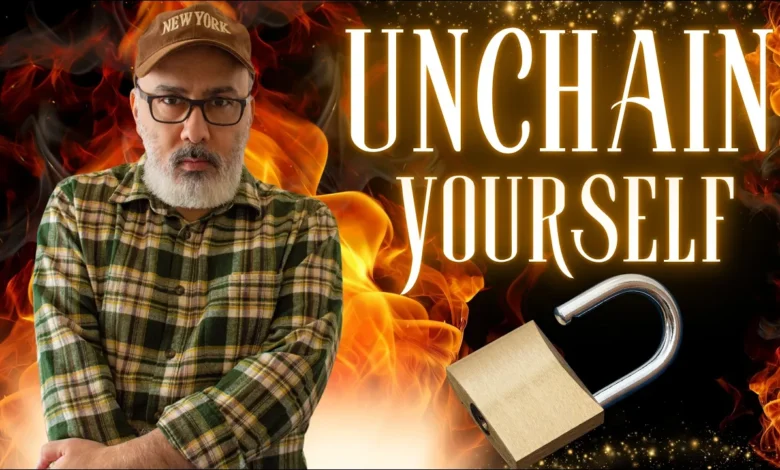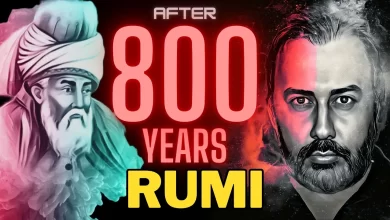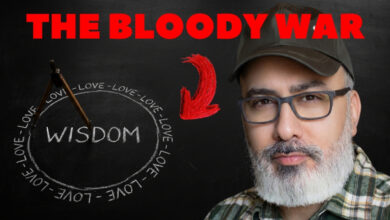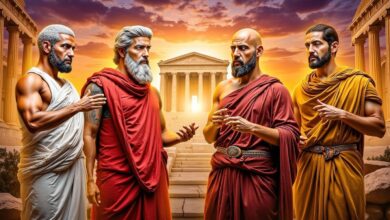How to feel rich
How to feel rich

How to get Rich
Do you feel poor?
Let’s let that question really land. Not “are you poor” by some objective, governmental standard. Not a question about whether you can afford food or shelter, which is a brutal and tangible reality for millions, and a struggle that deserves its own distinct and urgent conversation. No, I am asking something more insidious, more personal. I am asking if you feel poor.
Do you feel it when you are sitting in traffic, in the car you make payments on, and a newer, sleeker, more expensive model glides past you, seeming to move not just on asphalt, but on a different plane of existence? Do you feel it in the quiet of the night, when the house is still, and you’re scrolling through a screen, a window into a thousand other lives that seem shinier, fuller, and heavier with success than your own? Do you feel it as a cold knot in your stomach when a friend announces a promotion, a destination wedding, a new house in a better neighborhood? It’s not that you aren’t happy for them. You are. But in the echo of their good news, you hear a whisper about your own perceived lack. It is the feeling of being left behind. The feeling of not measuring up. It is a quiet, persistent, and exhausting ache in the center of your soul.
If you feel this, you are not alone. In fact, you are a perfectly normal, functioning member of the 21st-century world. We are living in an age of unprecedented paradox. By almost any historical measure, vast segments of our global population are richer than the kings and queens of ages past. A medieval monarch could not summon food from across the globe to their doorstep in minutes. They could not communicate with someone on the other side of the planet instantly. They did not have access to the vast pharmacopeia of modern medicine that can cure ailments that would have been a death sentence for them. They could not carry the entirety of human knowledge in a small, glowing rectangle in their pocket.
And yet… we feel poor. We are riddled with anxiety, drowning in debt, and haunted by a feeling of insufficiency. How can this be? How can we possess so much, yet feel so lacking?
The answer, I believe, is that we have been fundamentally misdiagnosed. We have been told that our feeling of poverty is an economic problem, and that the cure is therefore economic: get a better job, earn more money, invest more wisely, buy more things. We have been trying to solve a spiritual crisis with material solutions. And it is like trying to mend a broken heart with a bandage. It completely misses the nature of the wound.
The feeling of being poor is not a disease of the wallet. It is a disease of the soul. The source of this disease is a single, powerful, and relentless force: Greed. Or, to use a gentler but perhaps more accurate term, the endless, insatiable wanting. It is the belief that our happiness, our wholeness, our sense of being “enough,” is located just outside of ourselves, in the next acquisition, the next achievement, the next level of status.
And this is the greatest lie we have ever been told. It is a trap, a game rigged against us from the start. To understand why, we need to look deeper, not into our bank accounts, but into the very wiring of our minds and the timeless wisdom of those who saw this trap for what it was, centuries ago.
Let us first examine the machine that creates this feeling. What is the engine of this perpetual dissatisfaction? Philosophers, psychologists, and mystics have given it many names, but modern science has provided us with some remarkably clear blueprints. The first, and most famous, is a concept known as the “Hedonic Treadmill.”
The idea is simple, yet profound. Imagine you’re on a treadmill. You start walking, then jogging, then running, putting in more and more effort. But you are not actually going anywhere. You remain in the same spot. This is a perfect metaphor for the pursuit of happiness through material gain. You believe that a 10% raise will make you happy. And it does… for a week. Maybe a month. You get a surge of pleasure, a sense of accomplishment. But then, very quickly, this new level of income becomes your new baseline. It becomes normal. Your expectations adjust, your desires recalibrate, and you find yourself looking ahead to the next thing that will truly make you happy: a 20% raise, a bigger title, a larger house. You start running faster on the treadmill, but you are still in the exact same place emotionally.
Studies on lottery winners are the most stark illustration of this. People who win life-changing sums of money experience a massive spike in happiness. But researchers who track them find that, within a year or two, their happiness levels almost invariably return to what they were before they won. They are now multi-millionaires, but they have simply traded one set of problems and desires for another. They worry about losing the money, about people taking advantage of them, about whether their new, bigger house is as grand as their other new, rich friends’ houses. The treadmill has just been upgraded to a more expensive model, but it is still a treadmill.
This psychological quirk is then amplified a thousand-fold by a social mechanism that the brilliant French philosopher René Girard called “Mimetic Desire.” Girard’s theory is one of the most powerful explanatory tools for understanding human behavior. He argued that our desires are rarely our own. We don’t just spontaneously want things. We want things because other people want them. Our desires are copied, or mimicked.
Think of two children in a room full of toys. One child can be happily ignoring a red truck for an hour. But the moment the second child picks up that red truck and shows an interest in it, it suddenly becomes the most desirable object in the universe to the first child. The value of the truck did not change. What changed was that it became the object of someone else’s desire.
Now, imagine this dynamic scaled up to a global population of billions, all connected by the internet. Social media is the most powerful mimetic engine ever created in human history. Every scroll is an education in what you are supposed to want. You see the curated vacations, the perfect bodies, the designer clothes, the idyllic family photos of others, and you unconsciously absorb these as the models for your own desires. You begin to want what they, seemingly, have. This creates a state of perpetual, low-grade rivalry with everyone. We are all in a silent competition for the same socially-validated symbols of a “good life.” It’s an unwinnable war, because the battlefield is infinite and the targets are always moving.
And finally, let’s look at the biology of it. Our brains are wired for this trap. The neurotransmitter dopamine is often misunderstood as the “pleasure chemical.” It’s not. Dopamine is the “motivation chemical.” It is released not when we get the reward, but in anticipation of the reward. It’s the thrill of the chase. It’s what kept our ancestors hunting and gathering, pushing them forward to seek the next meal, the next water source. Our brain rewards us for wanting, not for having.
This creates a cruel loop. The anticipation of buying the new car releases a flood of dopamine. The research, the test drives, the planning – this is where the brain finds its joy. The moment you actually sign the papers and drive it off the lot, the dopamine circuit has already done its job. The pleasure begins to fade almost immediately, and the brain starts looking for the next target to anticipate, the next thing to want. This is why a shopping addict gets more of a thrill from the act of shopping than from the things they bring home. It’s why we are a culture obsessed with the “next,” always moving, always seeking, and therefore, always feeling that what we have right now is not quite enough.
The Hedonic Treadmill, Mimetic Desire, and the Dopamine Loop. This is the unholy trinity that generates the modern feeling of poverty. It’s a psychological, sociological, and neurological prison.
And yet, long before we had these scientific labels, ancient wisdom saw the prison for what it was. The great poet and mystic of the 13th century, Rumi, looked at the world around him—a world of merchants, kings, and common folk—and saw the very same affliction. He saw people enslaved by their own desires, trying to find infinite satisfaction in finite things. He saw the futility of it, the spiritual thirst it created. And in a powerful passage, he diagnosed the illness with stunning clarity. He saw us trying to pour the entire ocean into a small clay pot.
He wrote:
“Unchain yourself, my son, escape its hold!
How long will you remain a slave of gold?”
This is a plea. An intervention. He calls us “son,” with love, with intimacy. And he calls our condition slavery. We think our possessions and our ambitions are symbols of our freedom and power, but Rumi sees them as chains. Gold is not just currency; it is a symbol for all material desire, for every external thing we believe will complete us. We are not the masters of our desires; we are their slaves.
He continues with a metaphor of profound depth:
“You’ve tried to fit inside a jug the sea––
It only has a day’s capacity:”
The sea is the infinite. It is the endless horizon of things you could want. The new car, the bigger house, the promotion, the validation from strangers, the perfect body, the envy of your peers… this sea of potential desires is boundless. The jug is you. Your life. Your heart. Your capacity to hold and to experience. It is finite. It has, as he says, “a day’s capacity.” You can only live one day at a time. You can only be in one place at a time. To try and pour the infinite ocean of “more” into the finite jug of your life is an act of madness. The jug will never be full; it will only feel the pressure of the overwhelming sea it is failing to contain. It is a recipe for perpetual frustration.
And this leads to his stark, simple, and devastating conclusion about the nature of this state:
“A greedy eye is never satisfied…”
This is the diagnosis. It’s not about the economy. It’s not about your salary. It’s about the “eye”—the faculty of perception, the way you look at the world. If the eye is greedy, it is functionally blind to what it already possesses. It can only see what is missing. A person with a greedy eye can be sitting on a mountain of treasure and feel like a pauper, because their gaze is fixed on the one coin they do not have. The problem isn’t the size of the mountain; it’s the disease in the eye.
So if this is the diagnosis, what is the cure? If we are slaves to gold, how do we find freedom? If our greedy eye is the source of our poverty, how do we learn to see differently?
The cure is as radical as it is simple. It is a complete inversion of everything our culture has taught us.
True wealth is not found in accumulation. It is found in liberation. It is not about getting more, it is about needing less.
Let that sink in. The path to feeling rich is not addition, but subtraction. It is the systematic, intentional, and courageous act of killing the false needs in your soul. It is an inner house-cleaning. It is looking at every single “I need” that pops into your head and asking, with ruthless honesty, “Is that true?”
Do you need the approval of people you don’t know on the internet? Do you need a car that does 0 to 60 in three seconds to drive to the grocery store? Do you need to impress people at a party whose names you will forget by morning?
When you begin this interrogation, you discover that 99% of your “needs” are not needs at all. They are attachments. They are culturally conditioned cravings. They are the mimicked desires of others. They are ghosts. And when you stop feeding them your attention and your energy, they begin to dissolve.
This is not a call for asceticism or rejecting the world. You can enjoy beauty. You can appreciate comfort. You can strive to create and to build. The difference is in the attachment. The Stoic philosophers of ancient Rome had a powerful practice for this. They would regularly engage in what they called “negative visualization.” They would take time to vividly imagine losing the things they cherished most: their wealth, their home, their health, even their loved ones.
This wasn’t meant to be morbid. It was meant to be a potent antidote to the Hedonic Treadmill. By imagining life without these things, they could then return to their present reality and feel an overwhelming sense of gratitude and richness for what they already had. The person who has just imagined being homeless feels like a king in their simple, warm bed. The person who has contemplated the loss of a friend feels an ocean of love in a simple conversation. They were training themselves to need less, and therefore, to value more.
It is a state of mind the Buddhists call non-attachment. It doesn’t mean you cannot own things. It means things cannot own you. You can have the beautiful cup of tea, you can drink from it and enjoy its warmth, but if the cup breaks, you do not break with it. Your inner peace was never dependent on the cup.
This is the state of being that Rumi points to in the very next line of his poem. After diagnosing the sickness of the greedy eye, he shows us the image of health, of true wealth. And he finds it in the deep ocean, in a creature that has mastered the art of inner creation.
“Shells only when content grow pearls inside…”
Think about this image. A pearl, one of the most precious and beautiful gems, is born from irritation. It begins when a grain of sand or some other intruder gets inside the oyster’s shell. The oyster cannot eject the irritant. So what does it do? It doesn’t rage against the grain of sand. It doesn’t despair. It calmly, patiently, and masterfully begins to coat the source of its irritation with layers and layers of a beautiful, luminous substance called nacre. Over years of this quiet, contented work, it transforms the source of its pain into a thing of profound beauty.
The oyster does not grow a pearl by seeking something outside of itself. The pearl is an internal creation. And Rumi’s insight is that this creation can only happen when the shell is “content.” An agitated, stressed, frantically searching oyster cannot perform this miracle. It is a work of peace.
We are the oyster. The irritants are the unavoidable pains and struggles of life, and the constant temptations of greed and desire. If we are not content, if we are always agitatedly seeking a solution outside of ourselves, we just get scraped raw by the grain of sand. But if we can find a place of contentment, of acceptance, of inner peace, we can begin the alchemical work of coating our irritations with layers of wisdom, resilience, and grace. We can grow our own pearl.
This pearl is your true wealth. It is your integrity. Your peace of mind. Your character. Your capacity for joy. It is a treasure that no economic downturn can touch, that no thief can steal, that no market fluctuation can devalue. It is grown inside you, from the very stuff of your life. This is what it means to be rich in your soul.
To be free from the slavery of needing more. To be content. This is a profound state of wealth. But Rumi, in his infinite wisdom, takes us one step further. There is another force, an even greater one, that not only makes us content but actively dissolves greed at its very root. It is the ultimate antidote. It is the final and greatest treasure.
That force is Love.
Now, when I say love, I am not speaking of the transactional, needy emotion that often passes for love in our culture. I am not talking about “I love you because you make me feel good,” or “I love you because you meet my needs.” That is not love; that is a contract. It is another form of consumption, where the other person becomes a product meant to satisfy us.
The love Rumi speaks of, the love that makes one truly rich, is a transcendent force. In Arabic, it is called Ishq. It is a selfless, all-consuming, transformative love. It is the love that annihilates the ego.
Think about the state of greed. It is the ultimate expression of the ego. I want. I need. I must have. The self is at the center of the universe. It is a gravitational black hole, trying to pull everything into itself.
Love, true Ishq, is the exact opposite. It is a supernova. It is an outward explosion of light and energy. In the state of true love, the “I” disappears. The lover’s focus is entirely on the beloved. The lover’s joy is in the beloved’s existence. The lover’s wealth is the beloved’s happiness.
A mother watching her child sleep does not need anything else in that moment to feel wealthy. A person in the thrall of deep, compassionate love for humanity, dedicating their life to service, is not worried about the brand of their shoes. The lover needs nothing but the beloved. In the presence of this love, the thousand petty desires of the ego are silenced. They are revealed to be the trivial ghosts they always were. Greed cannot breathe in the atmosphere of love.
This is the final destination on the path to true wealth. It is the ultimate purification. And Rumi captures this violent, beautiful, and total transformation in the final lines of his poem. He describes the men and women who have been seized by this force.
(The visuals could show images of profound human connection, compassion, and selfless acts.)
You:
“…While men whose clothes are ripped to shreds by love
Are cleansed of greed like this to rise above.”
“Ripped to shreds by love.” This is not a gentle image. It is a tearing, a destruction. What is being ripped to shreds? The clothes. The outer coverings. The ego. The persona. The social status. The carefully constructed identity built on possessions and achievements. Love, in its fierce grace, tears all of that away. It leaves you naked, vulnerable, and authentic.
And what happens in this state of loving annihilation? You are “cleansed of greed.” It’s a purification. The dirt and grime of wanting, needing, and coveting are washed away by this overwhelming force. And once you are cleansed, you “rise above.” You transcend the entire game. The Hedonic Treadmill, the mimetic rivalry, the endless chase – you are no longer playing. You are operating from a higher plane of consciousness, where wealth and poverty are measured by an entirely different standard.
So. How not to feel poor?
Let us bring this home. Let this not be a beautiful but impractical lecture. How do we begin this journey, right here, right now, in our complicated modern lives?
First, we must become a conscious observer of our own minds. When the feeling of “I am not enough” arises, do not push it away. Do not immediately distract yourself with a purchase or a scroll. Sit with it. Interrogate it. Ask it: “Where are you coming from? Whose desire is this? Is this truly a need, or is it a ghost?” This practice of mindfulness starves the engine of greed of its fuel.
Second, practice active gratitude. This is more than a fleeting “thank you.” It is the intentional discipline of focusing your attention on what you have. Keep a gratitude journal. Every day, write down three things you possess that you would desperately miss if they were gone. Your health. A specific relationship. The roof over your head. The ability to read. This practice retrains your “eye” to see the riches that are already present.
Third, curate your information diet with the ruthlessness of a librarian. Your attention is your most precious resource. Stop feeding it to sources that make you feel poor. Unfollow the accounts that trigger envy. Limit your exposure to advertising. Fill your mind with wisdom, with art, with ideas that nurture your soul, not with content that inflames your ego.
And fourth, and most importantly, invest in love. Not as an abstract concept, but as a daily practice. Shift your focus from acquiring to connecting. The time you might have spent researching a new product, spend it instead on a deep, uninterrupted conversation with a loved one. The money you might have spent on an item to impress others, use it to help someone in need, no matter how small the act. Practice empathy. Try to see the world from another’s perspective. These acts of connection and compassion are deposits into your spiritual bank account. They build the indestructible wealth of the soul.
The journey away from feeling poor is the journey inward. It is the rediscovery of a timeless truth: that the person who needs nothing is truly rich, and the person whose heart is filled with love is the wealthiest soul in the universe.
The world will continue to scream at you that you are not enough. It will dangle shiny objects in front of you and promise you happiness. It will try to convince you that your worth is measured by what you own.
Do not believe it. Look inward. Find the quiet contentment of the oyster. Grow your own pearl. Let your heart be ripped to shreds by love. And you will be cleansed. You will rise above. And you will never feel poor again.







